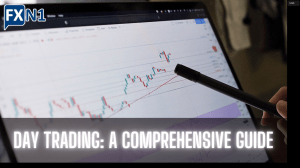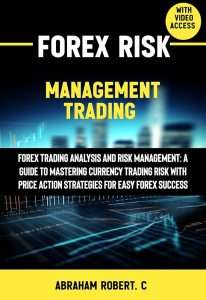Understanding the Legitimacy and Risks of Forex Trading
Unlock the secrets of forex trading! Learn about the potential for profit, understand the inherent risks, and discover strategies for success in this exciting but challenging market. Conquer Forex today!
Forex trading, the global exchange of currencies, often evokes images of fast profits and instant wealth․ However, the reality is far more nuanced․ It’s a market brimming with potential, but also fraught with risk․ Understanding the legitimacy of forex trading requires a thorough examination of its regulatory landscape, inherent risks, and the strategies employed by successful traders․ This article delves deep into these aspects, providing you with a comprehensive understanding to help you make informed decisions․
Understanding the Forex Market
The foreign exchange market, or forex, is a decentralized global marketplace where currencies are traded․ Unlike stock exchanges with centralized locations, forex operates 24 hours a day, five days a week, across various global financial centers․ This accessibility is a key draw for many, but it also contributes to the market’s volatility․ The sheer volume of transactions, exceeding trillions of dollars daily, makes it the world’s largest and most liquid market․ This liquidity, while generally beneficial, can amplify both gains and losses․
Major Players in the Forex Market
The forex market isn’t just populated by individual traders․ Large multinational corporations use forex to manage their international transactions and mitigate currency risks․ Central banks intervene to influence their national currencies․ Investment banks and hedge funds employ sophisticated trading strategies, often utilizing high leverage․ Understanding these diverse players and their motivations is crucial to interpreting market movements․
The Legitimacy of Forex Trading: Regulatory Aspects
The legitimacy of forex trading hinges largely on regulation․ While the market itself is decentralized, various regulatory bodies oversee different aspects of forex trading within their jurisdictions․ These bodies aim to protect investors from fraud and manipulation․ However, the level of regulation varies significantly across countries, leading to different levels of investor protection․
- National Regulatory Bodies: Many countries have their own financial regulatory bodies that oversee forex brokers operating within their borders․ These bodies often require brokers to meet specific capital requirements and adhere to strict conduct standards․ Examples include the Financial Conduct Authority (FCA) in the UK, the Commodity Futures Trading Commission (CFTC) in the US, and the Australian Securities and Investments Commission (ASIC) in Australia․
- International Regulatory Frameworks: While there isn’t a single global regulator for forex, international organizations like the Financial Stability Board (FSB) work to coordinate regulatory efforts across countries․ Their aim is to enhance global financial stability and reduce systemic risks associated with the forex market․
Choosing a Regulated Broker
One of the most important steps in engaging in legitimate forex trading is selecting a regulated broker․ A regulated broker operates under the oversight of a recognized financial authority, providing a degree of investor protection․ This protection isn’t absolute, but it significantly reduces the risk of encountering fraudulent activities; Always check a broker’s regulatory status before depositing any funds․
Risks Associated with Forex Trading
Despite its legitimacy, forex trading carries significant risks․ Understanding these risks is crucial for responsible participation․ The market’s volatility, leveraged trading, and the potential for scams are all critical factors to consider․
Leverage: A Double-Edged Sword
Leverage, a key feature of forex trading, allows traders to control larger positions with a smaller initial investment․ While leverage can amplify profits, it also magnifies losses․ A small adverse movement in the market can wipe out a trader’s entire account if they’re using excessive leverage․ Many beginners fall victim to this risk, underestimating the potential losses․
Market Volatility
The forex market is known for its volatility․ Geopolitical events, economic data releases, and unexpected news can cause significant and rapid price swings․ These rapid fluctuations make it challenging to predict market movements accurately, increasing the risk of losses․ Proper risk management techniques are crucial to mitigate the impact of volatility․
The Prevalence of Forex Scams
The forex market unfortunately attracts numerous fraudulent schemes․ Unscrupulous individuals and companies prey on inexperienced traders, promising unrealistic returns and employing deceptive tactics․ Thorough research and due diligence are paramount to avoid becoming a victim of these scams․ Look for brokers with proven track records and transparent fee structures․
Strategies for Safe and Successful Forex Trading
Successful forex trading requires a combination of knowledge, skill, and discipline․ It’s not a get-rich-quick scheme; instead, it demands a thorough understanding of market dynamics, risk management, and consistent effort․
Fundamental Analysis
Fundamental analysis involves examining macroeconomic factors that influence currency values․ This includes analyzing economic indicators such as inflation rates, interest rates, and GDP growth․ By understanding the underlying economic fundamentals of different countries, traders can make informed decisions about potential currency movements․
Technical Analysis
Technical analysis focuses on studying price charts and historical data to identify patterns and trends․ Traders use various technical indicators and chart patterns to predict future price movements․ This approach is data-driven and relies on identifying recurring patterns in market behavior․
Risk Management
Risk management is perhaps the most critical aspect of successful forex trading․ This involves setting stop-loss orders to limit potential losses, diversifying your portfolio across different currency pairs, and never risking more than a small percentage of your trading capital on any single trade; Emotional discipline is crucial; avoid chasing losses or letting emotions drive your trading decisions․
- Stop-Loss Orders: These orders automatically close a position when the price reaches a predetermined level, limiting potential losses․
- Take-Profit Orders: These orders automatically close a position when the price reaches a predetermined level, securing profits․
- Position Sizing: Carefully calculate the appropriate position size for each trade, ensuring you don’t risk more than a predetermined percentage of your capital․
Continuous Learning and Adaptation
The forex market is constantly evolving, influenced by global events and changing economic conditions․ Successful traders continuously learn and adapt their strategies․ Staying updated on market news, economic indicators, and new trading techniques is crucial for long-term success․ Consider joining trading communities or seeking mentorship from experienced traders․
Forex trading offers significant opportunities for profit, but it’s not without substantial risks․ Its legitimacy is undeniable, but only when approached with knowledge, discipline, and a realistic understanding of the inherent challenges․ By choosing a regulated broker, employing sound risk management strategies, and continuously learning, you can significantly increase your chances of success․ Remember that consistent profitability in forex trading takes time, effort, and a commitment to continuous learning․ Never invest more than you can afford to lose, and always prioritize responsible trading practices․ The path to success in forex is paved with careful planning, diligent research, and unwavering discipline․ Successful trading isn’t about luck; it’s about skill, knowledge, and consistent application of effective strategies․ The potential rewards are substantial, but the risks are real․ Approach forex trading with respect and a commitment to lifelong learning, and you’ll be well-positioned to navigate this dynamic market․







